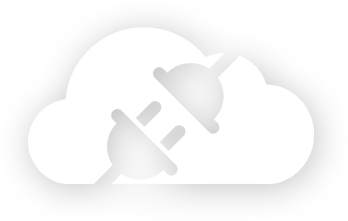
Domain names (DNS)
Background
A domain name is a unique internet name, which is used to identify a mailbox or website, for example. The characters at the end of a domain name depend on the top-level domain (TLD) that it belongs to. There are two kinds of TLD: generic TLDs (such as .com and .org) and country-code TLDs (such as .nl and .de). Both kinds make 'their' domain names reachable on the internet via the Domain Name System (DNS). All .nl domain names are registered through registrars – service providers who act as intermediaries for the .nl registry (SIDN).
Policy
ICANN
The Internet Corporation for Assigned Names and Numbers (ICANN) is responsible for policy on administration of the DNS root zone and the generic top-level domains. The registries for the country-code domains decide their own policy to a large extent, albeit with ICANN coordination.
Oversight
ICANN (the Internet Corporation for Assigned Names and Numbers) assigns top-level domains and develops policy for the generic domains such as .com and .org. The registries for the country-code domains – such as .nl (the Netherlands) and .be (Belgium) – are responsible for their own policy to a large extent.
Operation
IANA, (the Internet Assigned Numbers Authority) is responsible for global operation of the DNS root zone and for administration and allocation activities for internet protocol parameters and IP addresses, so that computers can reliably communicate with each other via the internet.

test
Background
An Internet Protocol (IP) address is a unique numeric address. Every internet-connected computer or server has its own IP address. Its unique IP address makes each internet-connected computer reachable and enables it to communicate with others. An IP address may belong to the original series, known as IPv4 addresses, or to a new and potentially much larger series, the IPv6 addresses.
Policy
RIRs
A Regional Internet Registry is responsible for defining IP address policy and issuing IP addresses in a particular region. RIPE NCC is the body for Europe and the Middle East, while APNIC is responsible for Asia and Australia, AfriNIC for Africa, LACNIC for Latin America and ARIN for North America.
Oversight
The Number Resource Organization is the supervisory body to which all the RIRs belong.
Operation
IANA, (the Internet Assigned Numbers Authority) is responsible for the global allocation of internet addresses and autonomous system numbers (to RIRs).

Protocols
Background
Protocols are standards for the internet. Standardisation is important, because it means that devices made by different manufacturers can communicate reliably with each other.
Policy
IETF
The Internet Engineering Task Force is a large, open international community concerned with the development of policies for the ‘internet architecture’ and the smooth running of the internet. In principle, anyone with an interest in such matters, such as network designers, network operators, service providers and researchers can participate in the IETF.
Oversight
IAB
The Internet Architecture Board (IAB) is the body that supervises the technical development of the internet by the Internet Society (ISOC). ISOC is the organisation above the IETF, which manages the IETF’s intellectual property rights.
Operation
IANA
The Internet Assigned Numbers Authority is responsible for global designation and administration of technical protocol parameters. Protocol parameters define the various specific matters addressed by a protocol.